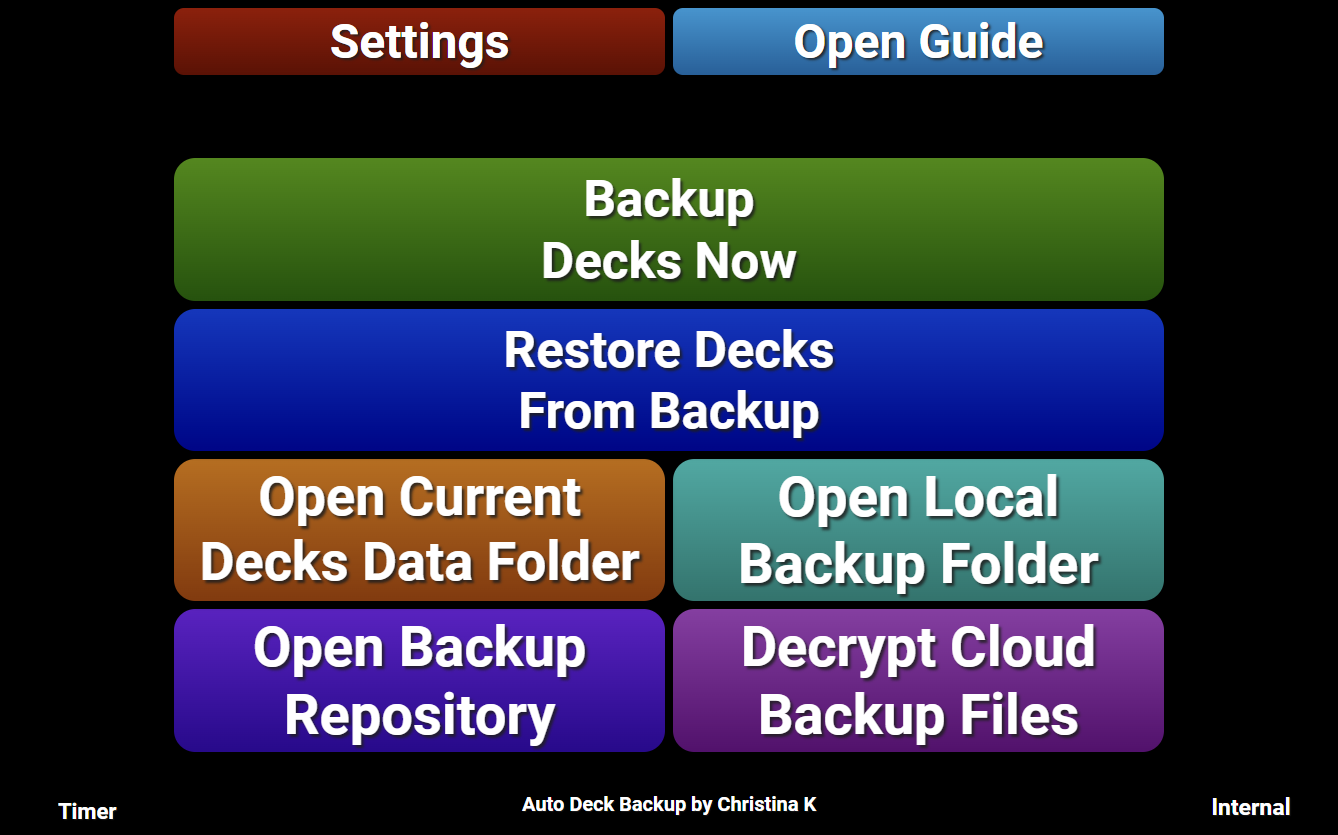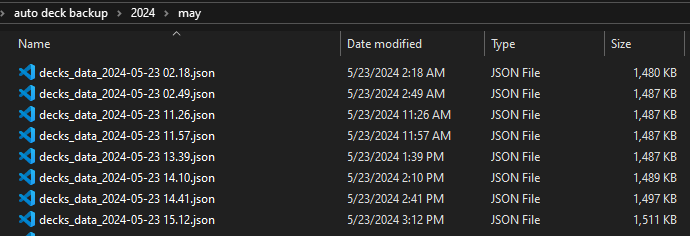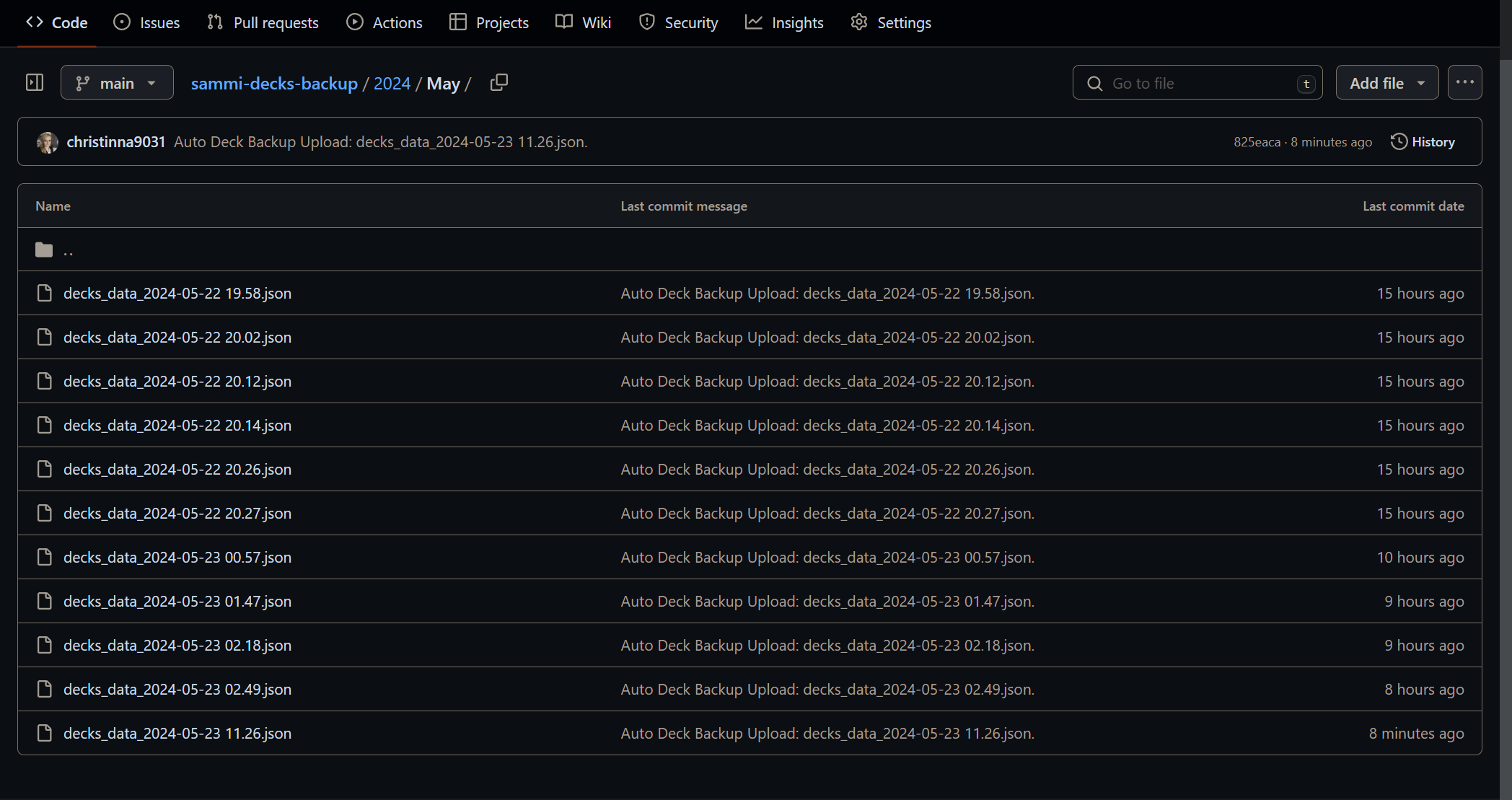Overview
Auto Deck Backup is an extension that allows you to automatically backup your decks to local and cloud (Github) storage. You can set the interval for backups and choose the storage location.
Features
- Backup Decks Locally
- Backup Decks to Github (optional)
- Set Backup Interval
- Automatically delete old backups (local only)
- Cloud backup comes with encryption
- Premade deck with all available commands and explanations
Important Note
- The extension may not properly work on non Windows devices.
- The developer is not responsible for any data loss or corruption due to the use of this extension, nor for any issues with the cloud storage provider.
Special thanks goes to:
My amazing Patrons.
Thank you
so much!
If you would like to support me in creating more extensions for SAMMI, you can become my Patron to get early free access to my extensions or make a Paypal donation.
DISCLAIMER: The extension is provided as is. The developer has no obligation to provide maintenance and support services or handle any bug reports. Basic SAMMI knowledge is required to use this extension.
Feel free to edit the extension for your own use. You may not distribute, sell, or publish it without the author’s permission.
Setup
Privacy Policy
This developer declares that your data is:
- Not being sold to third parties.
- Not being used or transferred for purposes that are unrelated to the extension's core functionality
- Not being used or transferred to determine creditworthiness or for lending purposes
Reviews
Coming soon!


